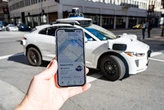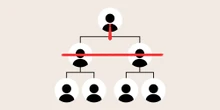On Danone’s factory floors, where frontline workers make products like Dannon and Activia yogurts and Evian water, smart sensors detect vibrations and temperature changes to signal potential machine malfunctions. AI-powered “vision systems” find quality defects well before the human eye. AI even helps streamline processes like spray drying powdered baby formula.
These systems aren’t meant to replace human workers. Rather, says Danone’s chief operating officer Vikram Agarwal, “Machines will be our colleagues, and we will be theirs.”
In this piece, paid subscribers will learn:
- Why manufacturing companies are focused on reskilling rather than replacing workers
- How Danone uses AI “digital twins”
- Which skills employees are learning to become “more agile, more responsive”
THE RISE OF THE ROBOT COLLEAGUE
We’re already seeing this happen: in Amazon warehouses there’s nearly one robot per human. While employers generally want factory workers to learn how to work with robots rather than get replaced by them, taking employees off the factory floor for digital training can increase labor costs, as employers must cover posts left unmanned by someone participating in a classroom-style session.
“Most frontline employees don’t have access to flexible, job-embedded learning opportunities,” says Matthew Daniel, senior principal for talent strategy at workforce training organization Guild. “As a result, they’re often being left out of the first wave of AI enablement strategies.” Yet he points out these employees may need AI training the most. “Forty percent of advanced manufacturing skills will evolve in the coming years,” he says.
A 2023 Boston Consulting Group study found that just 14% of frontline workers, including factory workers, have received AI training, compared to 44% of business leaders.
That’s why companies like Danone have created in-house “academies” that upskill employees on technologies like AI and automation. Danone’s Industry 5.0 Academy aims to equip more than 20,000 of its manufacturing workers, from China to Brazil, with what Agarwal calls “practical” AI skills, like using the tech to test products, map out production processes, and detect defects. A few other major manufacturers, like Bosch, have taken similar paths, mixing on-the-job learning (to prevent disruption on factory floors) with instructional sessions led by vendors and even apprenticeships.
“Physical work by operators will increasingly be replaced with operators [training] AI models to do the physical work,” Agarwal says. The aim of Danone’s academy is to make those operators’ roles “more agile, more responsive, and more focused on problem-solving.”
AI academies meet “the moment of need”
In-house AI academies train employees on how AI and increased automation can reduce downtime and up efficiency with factory worker assistance.
At engineering company Bosch, which has an “AI Academy” that had trained more than 65,000 associates as of January 2025, factory floor workers engage in “classroom-style sessions” with in-house AI experts focused on real projects taking place at the plants where they work, says Caroline Bird, digital officer for Bosch Mobility, Americas. That way, they can take what they’ve learned from the class immediately back to manufacturing frontlines.
“In factories where AI is being applied, it’s typically embedded directly into the tools workers already use, making it a natural extension of their workflow,” says Eddy Azad, CEO of Parsec, an organization that works with thousands of manufacturing companies to help incorporate AI into their operations. He cites companies that use “AI-powered assistants” in manufacturing systems to bring quality issues to employees as soon as they’re detected, like at Danone. The company also uses AI for predicting when problems might arise, so frontline workers can solve them before they get too serious. AI assistants at other companies help with tasks like “logging performance events,” Azad says, or initiating shift changes, performing services that cut out busywork.
Danone also uses “digital twins,” or AI simulations that let production team members test new products or processes virtually so as not to waste energy or ingredients by testing with physical models. “We can model emissions outcomes before changes are made,” Agarwal says, and “create production lines that are more sustainable.”
At Bosch, U.S.-based factories use AI to plug up inefficiencies. For instance, if one manufacturing line goes down, the AI can tell workers from that line where they’d be most productive elsewhere in the factory during that shift.
Importantly, in-house AI upskilling academies don’t require workers to come into trainings with technical backgrounds. Instead, as at Bosch, they focus on “setting a strong foundation so associates understand how AI works,” says Bird. At Bosch’s South Carolina manufacturing facility, for example, the company held a session about engineering AI prompts to increase efficiencies on the factory floor, using real examples from the facility’s operations.
“We’ve seen the best results when training is delivered in small, focused increments through embedded work instructions, guided prompts, or short, role-specific video walkthroughs,” says Azad of advanced technology trainings. “It’s not about formal seminars. It’s about targeted support at the moment of need.”
AI is foundational, not optional
Ultimately, AI and automation upskilling, or reskilling, programs aim to keep workers valuable. Per a study published in the Harvard Business Review in 2023, a large, unnamed auto manufacturer straight up told some of its engineers that their skills were becoming obsolete—they would have to learn how to use smart technology in their work to maintain job security.
When executives come to Parsec, Azad says the questions they ask “are pragmatic—how can AI help us reduce downtime, improve quality, or run more efficiently?” Azad adds that one question they tend not to ask is, “Should we replace people?” Instead, they ask about how to train their teams.
Danone’s Agarwal has called AI reskilling a company “priority.” Now that Industry 5.0 Academy is up and running, Danone’s begun working on a new network of 10 factories to pilot “disruptive models,” Agarwal says, that will focus on “human-machine collaboration.” Meanwhile, Bird says Bosch sees AI driving so much growth that the company plans to invest more than $2.7 billion in the technology by 2027.
Despite this explosion in AI and automation on factory floors, “formal academies like Danone’s are still not very common,” says Azad. But he sees it as a burgeoning trend, he adds: “A standard part of manufacturing workforce development in the years ahead.”
After all, soon, these skill sets “won’t be optional,” says Daniel. “They’ll be foundational for factory workers,” as technicians’ roles increasingly shift from manual labor to digital. “When machines go down,” he says, “it takes more than a wrench to bring them back online.”











No comments